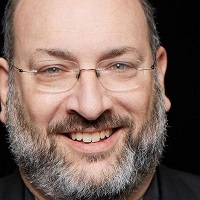 By David Harlow, JD MPH, Principal, The Harlow Group LLC
By David Harlow, JD MPH, Principal, The Harlow Group LLC
Twitter: @healthblawg
Host: Harlow on Healthcare
Hashtag: #HarlowOnHC
It is always a pleasure to speak with David Goldsmith (@dsgold), Chief Strategy Officer at WEGO Health. As he describes it, WEGO Health is working with clients in the life sciences – including pharma, digital health startups and others – to bring patient voice and expertise into their organizations in order to build more patient-centered solutions. The engagements with patient thought leaders and influencers help companies leverage their experience and help ensure that companies bring to market products that address patients’ needs directly.
David is optimistic – despite our shared experience of years of what I might call “just-around-the-corner-itis.” He is encouraged by what he sees as substantial gains – including the FDA’s programmatic approach to bringing the patient voice into the review process and therefore encouraging industry to bring the patient voice into multiple stages of the product life cycle.
The company is also working with healthcare providers, bringing patients in to patient advisory boards, serving as part of a team to help co-create new services. For example, a patient with a history of epilepsy became part of human-centered design process with a healthcare provider client, helping make the service offering as useful as possible to actual patients.
Companies and healthcare providers now seem to want to involve patients as part of a co-creating process over time, not just at the design and pre-launch phases. David suggests that this is driven by a combination of regulatory requirements and market expectations. And WEGO Health sees involving patients in the process as ultimately being good for their clients as well. They know that if they do not have trusted connections in the patient community “they will see more friction in the marketing and patient engagement side of their work.”
WEGO Health is sharing “behavioral intent” data. For example, 8 out of 10 patients are more likely to ask a clinician about something related to their care if they have learned about it from someone they see as influential in the patient community (e.g., someone active in an online patient community), and they are also more likely to share such information with other patients and with caregivers.
Patient roles in these conversations are varied. David offered a few examples of some WEGO Health projects involving expert patients:
- Help design an Alexa “skill” that would be helpful to rheumatoid arthritis patients
- Online community management
- Research recruitment – one success story involving a rare disease ended with the social-media-connected expert patient recruiting the necessary panel of patients for a research project in a coupe of weeks after the company conducting the research tried “traditional” channels for much, much longer.
We talked for about privacy in the post Facebook/Cambridge Analytica age, and David suggested that the evolution of expertise in the patient community regarding medical and broader healthcare matters has its parallels in the evolution of expertise in the same community regarding use of social media tools and the ins and outs of health data privacy.
Putting aside the parade of potential horribles, I asked David what he would hope or expect to see changed in healthcare five years from now. He proffered a hope and then almost immediately said, “It seems so silly to think of this as a fantasy — but we’re still not there yet.” And what is this fantasy? Context-sensitive access to comprehensive health record data, as needed by each member of each patient’s care team, no matter the care setting.
Maybe next-generation technology and next-generation regulations will bring us closer to this ideal state. (If you haven’t already, you will soon be hearing a great deal about the trusted exchange framework – Interoperability Ho! – and about the related idea that patient access to health data is so important that it should be a Medicare Condition of Participation.) I, for one, hope that we don’t have to wait five years.
This article in more detail was originally published on HealthBlawg and is republished here with permission.
